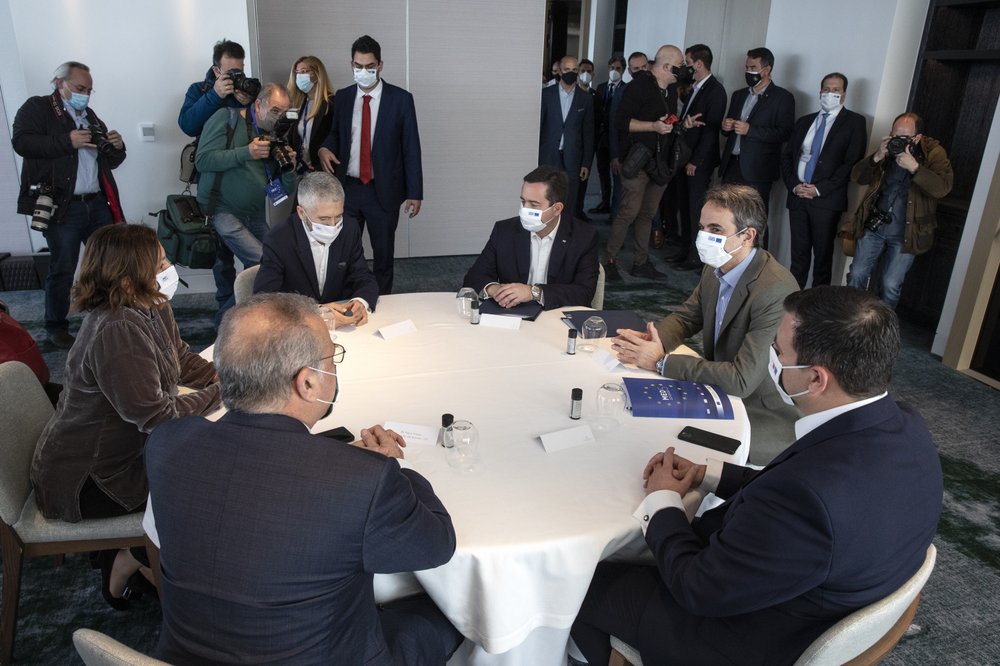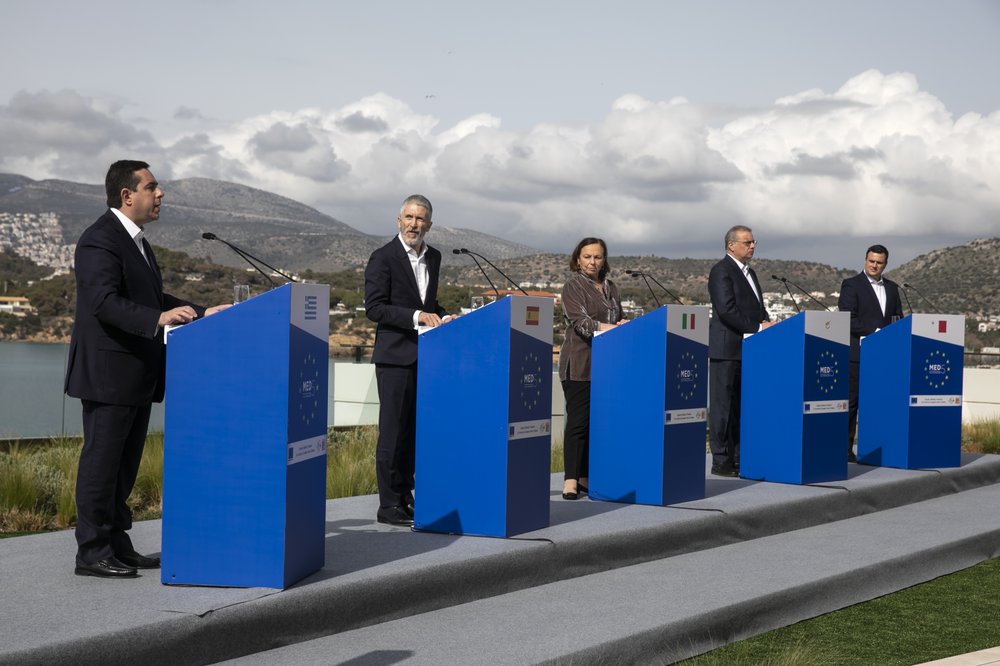The interior ministers of the five Mediterranean countries on the front line of mass migration to Europe want their EU partners to share the burden more equitably.
“We can no longer be punished for our geographical position,” Malta’s Byron Camilleri said Saturday, summing up his position and that of his colleagues from Cyprus, Greece, Italy and Spain after they met in Athens.
Greek Prime Minister Kyriakos Mitsotakis and European Commission Vice President Margaritis Schinas joined part of the meeting, Schinas is coordinating the commission’s work to revise the European Union’s pact on migration and asylum.

Ministers from Cyprus, Greece, Italy, Malta and Spain created a “MED 5” group last year in an effort to present united front and influence the new EU pact.
Their demands are threefold: better cooperation with the countries in Africa, the Middle East and South Asia where most Europe-bound migrants and asylum-seekers come from; greater willingness by other EU member nations to accept newly arrived migrants; and a centralized European repatriation mechanism overseen by the EU’s executive commission.
More than a thousand people protested in solidarity with migrants and refugees in the center of Athens on Saturday. The timing was intended to coincide with the officials’ meeting.

Southern European countries with extensive coastlines have borne the brunt of arriving asylum-seekers hoping to enter the EU. Most Europe-bound migrants travel by boat on dangerous maritime smuggling routes, either from the Turkish coast to nearby Greek islands or across the Mediterranean from north Africa.
The ministers discussed whether Turkey played an active role in pushing migrants toward Europe in contravention of a 2016 migration-control between the EU and Turkey.
Cyprus’ interior minister, Nikos Nouris, said most of the migrants arriving in his country enter from the the Turkish Cypriot-controlled northern part of the island nation. He called for Turkey to accept inspections on its southern shoreline by Frontex, the European border and coast guard agency.

Sourced By: AP News
